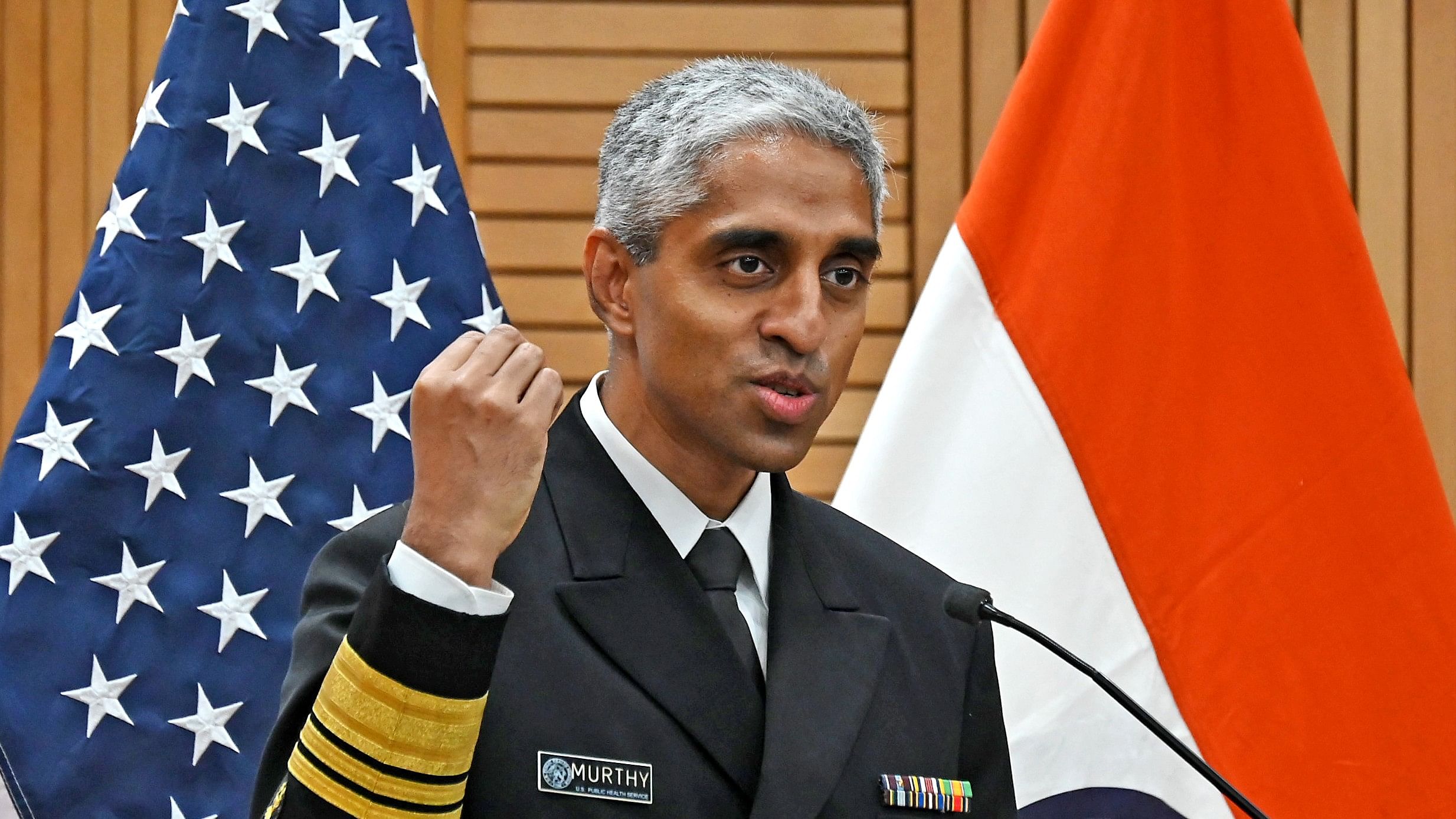
US Surgeon General Vivek Murthy addresses a press conference at Jayadeva Hospital, Bengaluru on Friday, October 11, 2024.
Credit: DH Photo/Pushkar V
Now is the time for the United States of America and India to collaborate to tackle the global mental health crisis we are witnessing today, United States Surgeon General Dr Vivek Murthy said at a press conference in the city recently.
Dr Murthy is the first Surgeon General of Indian descent. As the Co-Chair of the World Health Organization’s Commission on Social Connection, he has also issued the 'Surgeon General’s Advisory on Our Epidemic of Loneliness and Isolation' and the 'Surgeon General’s Advisory on Social Media and Youth Mental Health'.
He was in Bengaluru recently to address the global mental health and the loneliness crisis among young adults. Addressing the press at the Sri Jayadeva Institute of Cardiovascular Sciences and Research on Friday, he highlighted the need to strengthen mental health services globally owing to the impact it has on physical health conditions, economic productivity and educational outcomes.
"Loneliness is a public health issue. When people struggle with social disconnection, it increases their risk of depression, anxiety, suicide, and heart disease, dementia, and premature death," he said.
Social media, loneliness and social isolation, and overwhelming pressures youth experience are three important contributors to the global mental health crisis. "We found in our surveys that a third of adolescents said they felt addicted to social media...I call for not just more caution with the use of social media but also legislative policy efforts to make social media safer."
Financial stress, stigma, and shame to talk about mental health continue to remain challenges, he noted, calling on institutions and governments to prioritise access to care. "In medicine, we often focus a lot on treatment and often not enough on prevention. This is a time we cannot afford to do that; we have to do both," he said.
Appreciating the efforts of Indian organisations for their work in mental health, he noted that social acceptability, affordability and accessibility are critical.
He emphasised the importance of relationships and purpose, being part of a community and acts of service. "If we build these components into the lives of our children, we will help build a pathway of fulfilment for our kids, and that's where our focus needs to be."
He also acknowledged the pandemic affecting the development of social skills among the youth, and called for more focus on enabling systems that can help them. Additionally, safety, connection and community, work-life harmony, growth and feeling valued, were crucial to improving mental health of working communities, including healthcare professionals, he noted.
Spent childhood in Bengaluru
He recalled his childhood staying with his grandparents in Bengaluru.
"We would read the Deccan Herald and listen to All India Radio with my grandfather. We would eat mangoes during the season. We had jackfruit and coconut trees right around the house...these are all so many memories I have from my time in Bengaluru," Dr Vivek Murthy said.
"But even though a lot has changed since then, I know one thing that has not changed is the core element of culture- community, importance of relationships, fidelity to family. These are values that still exist here," Murthy noted.